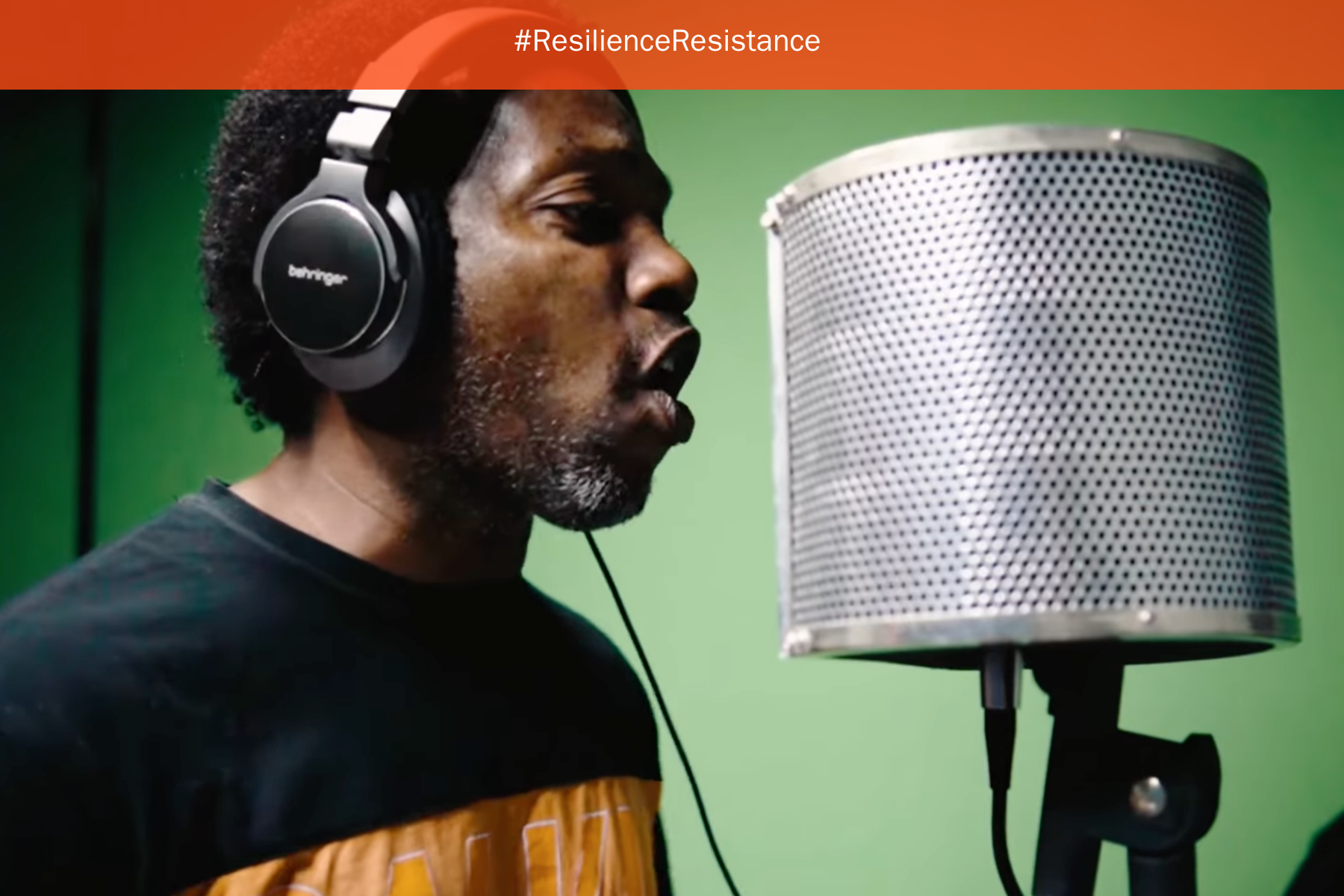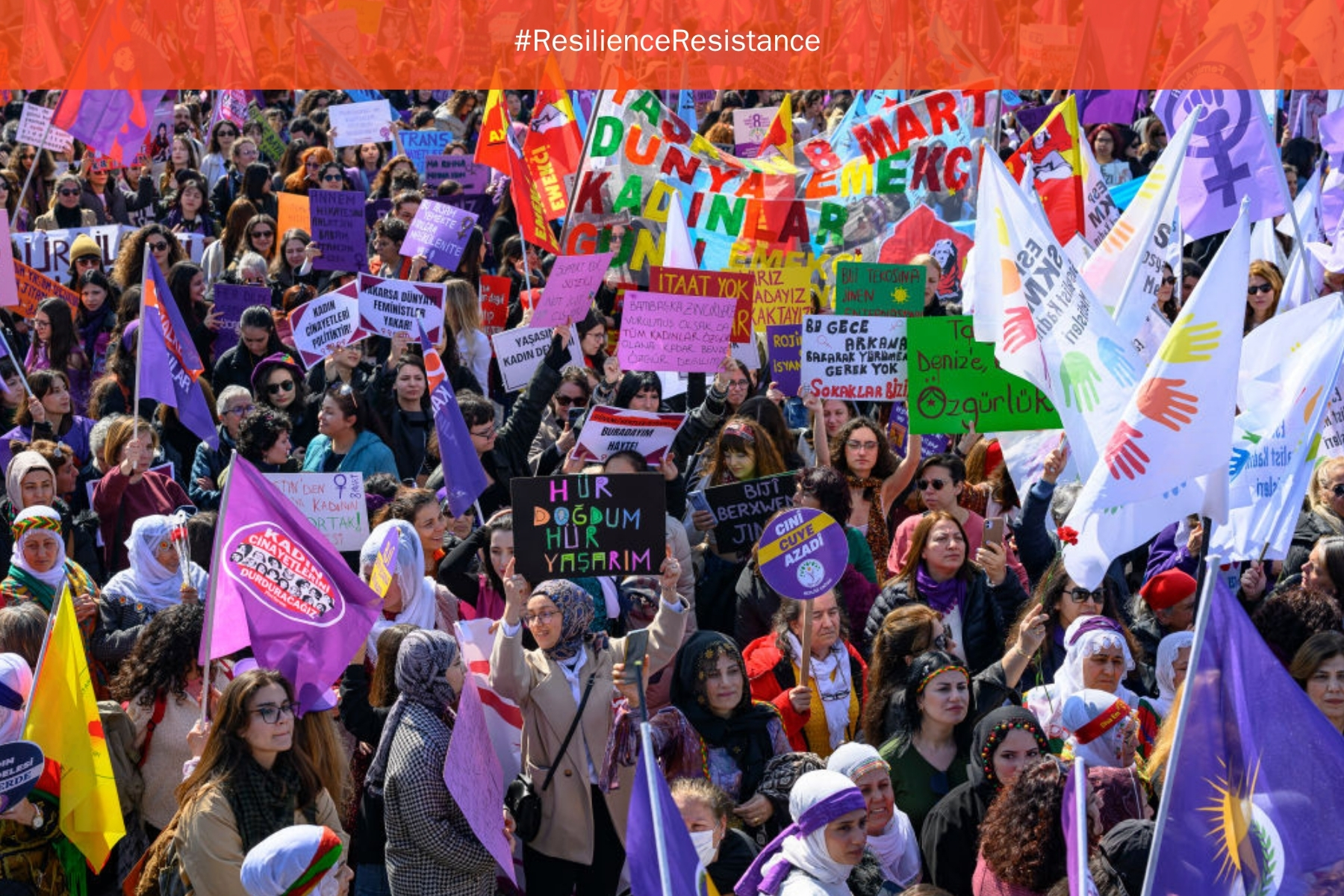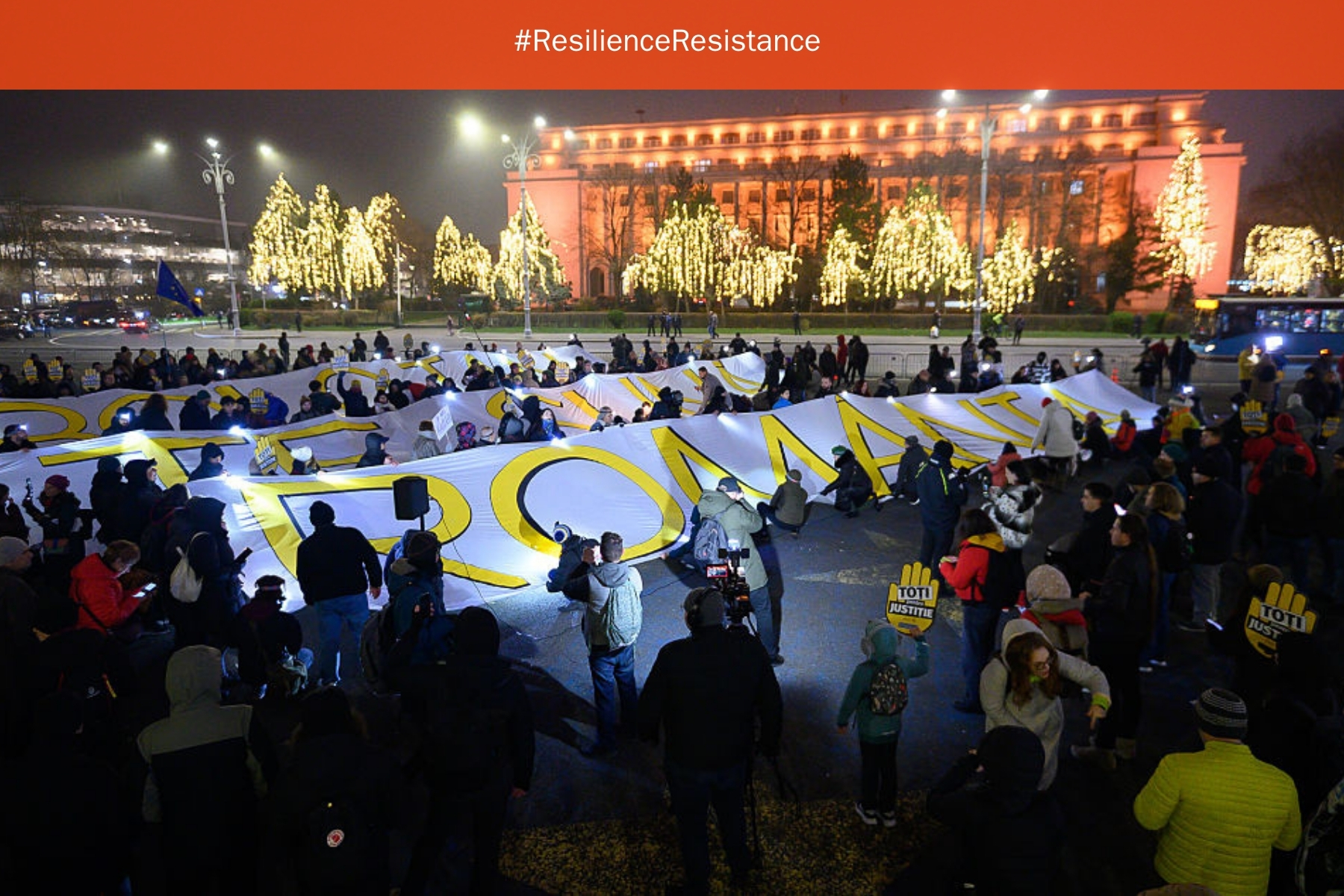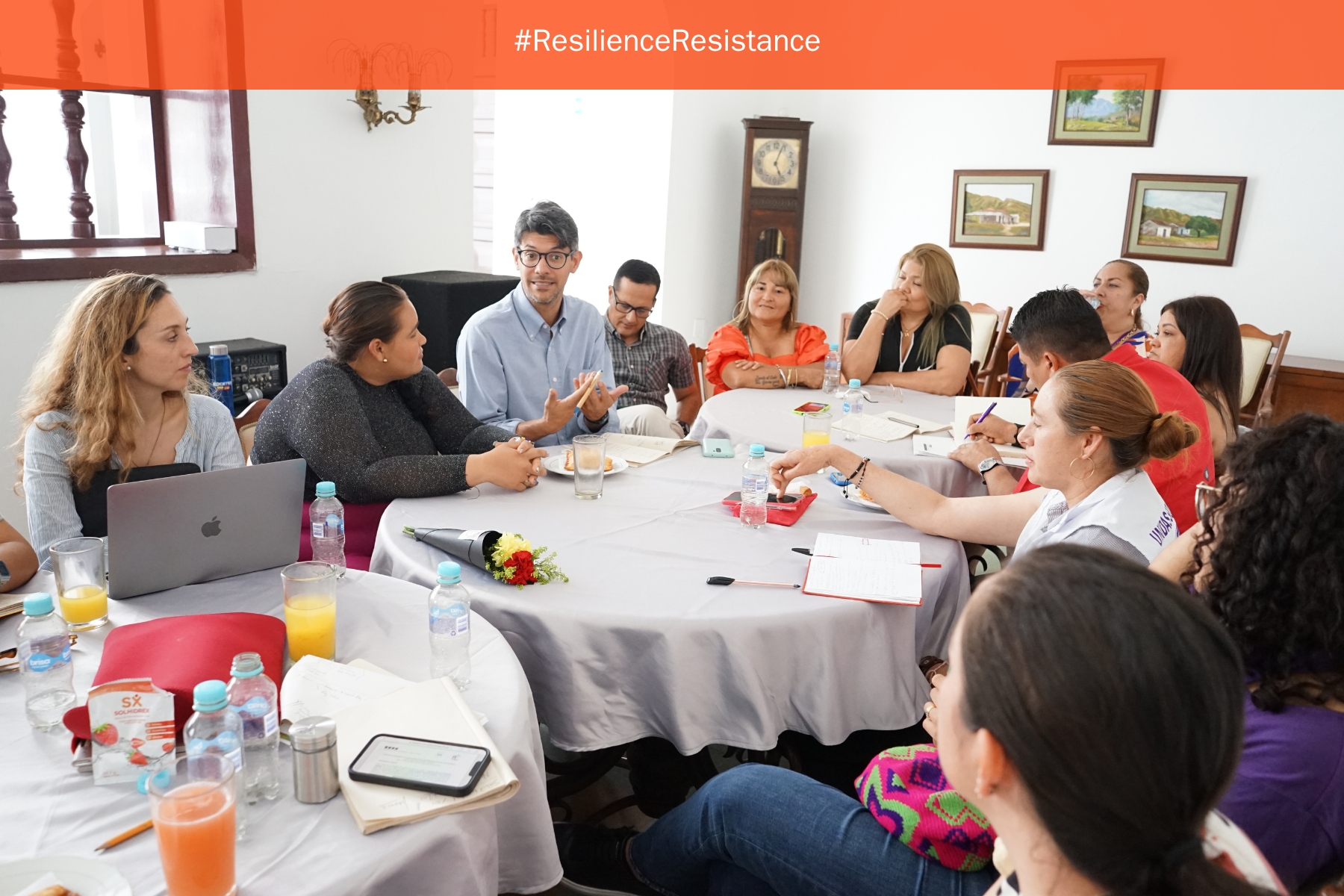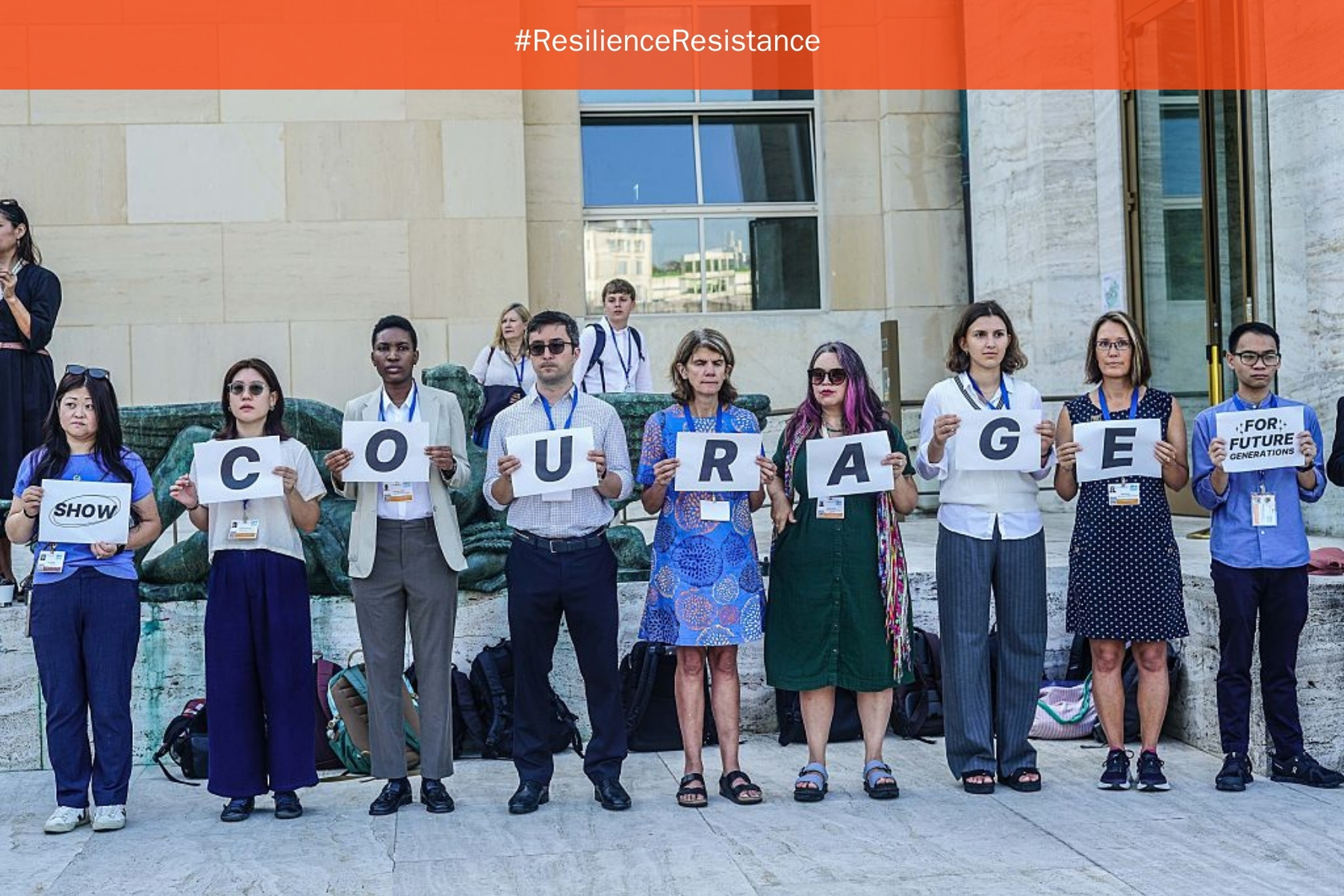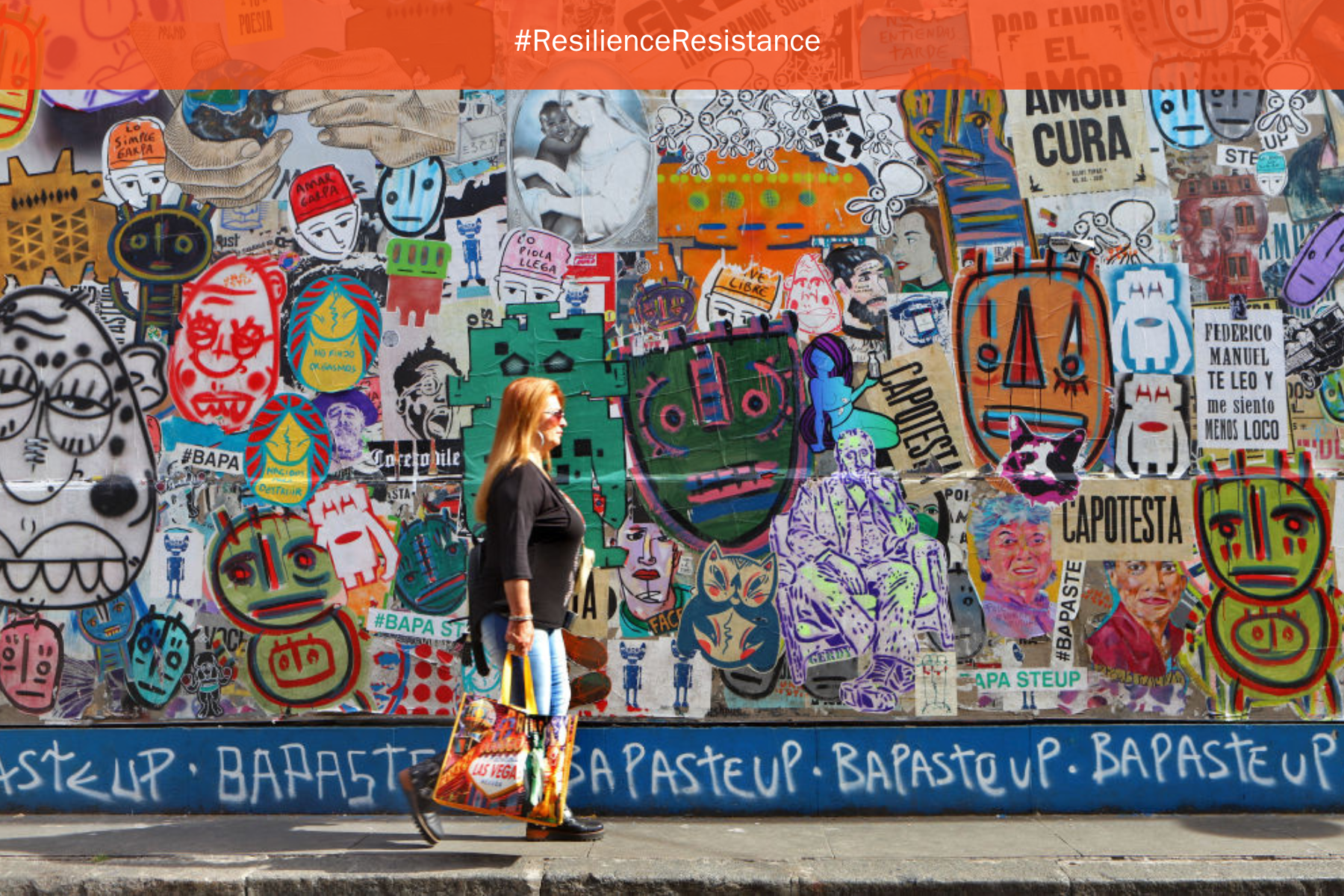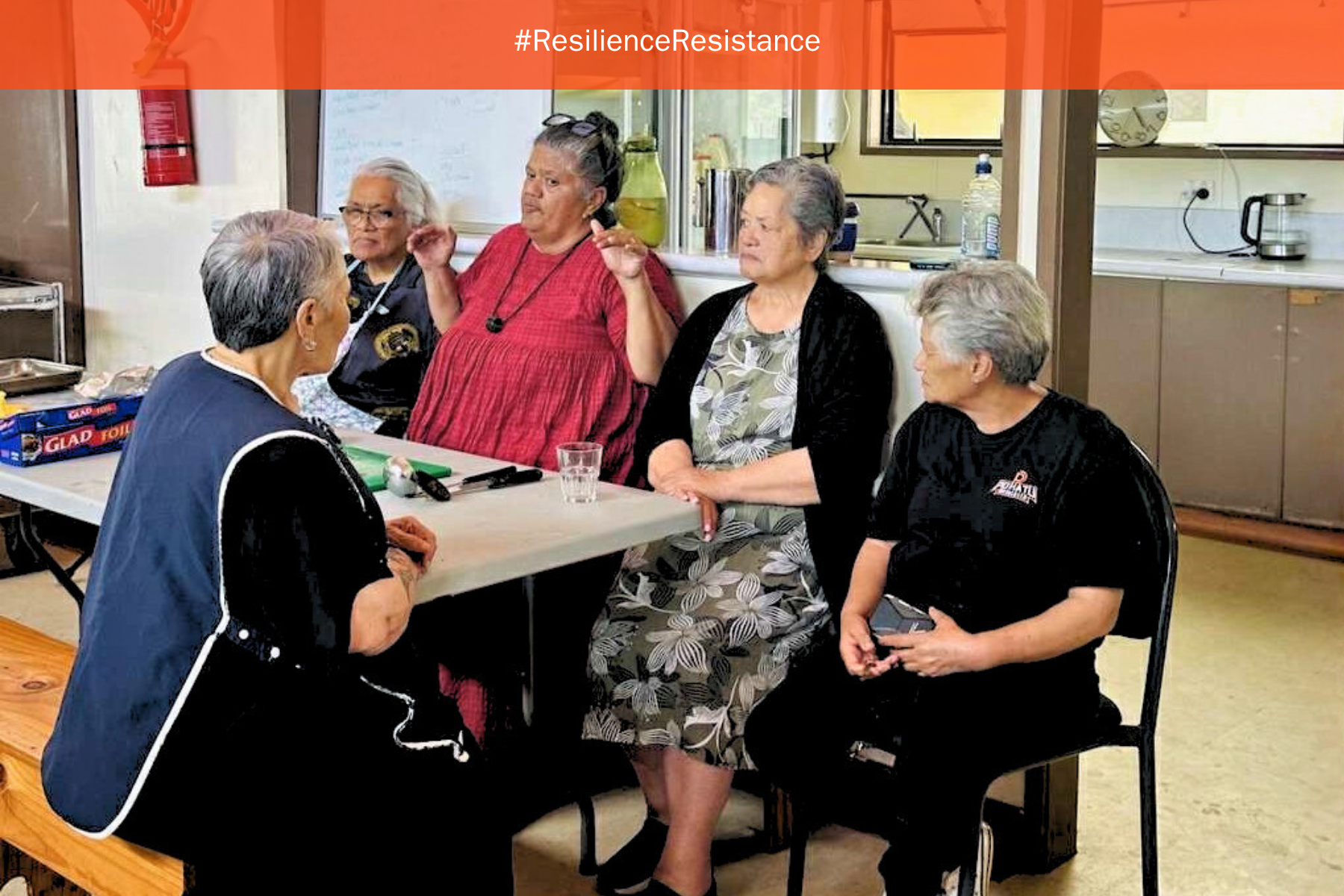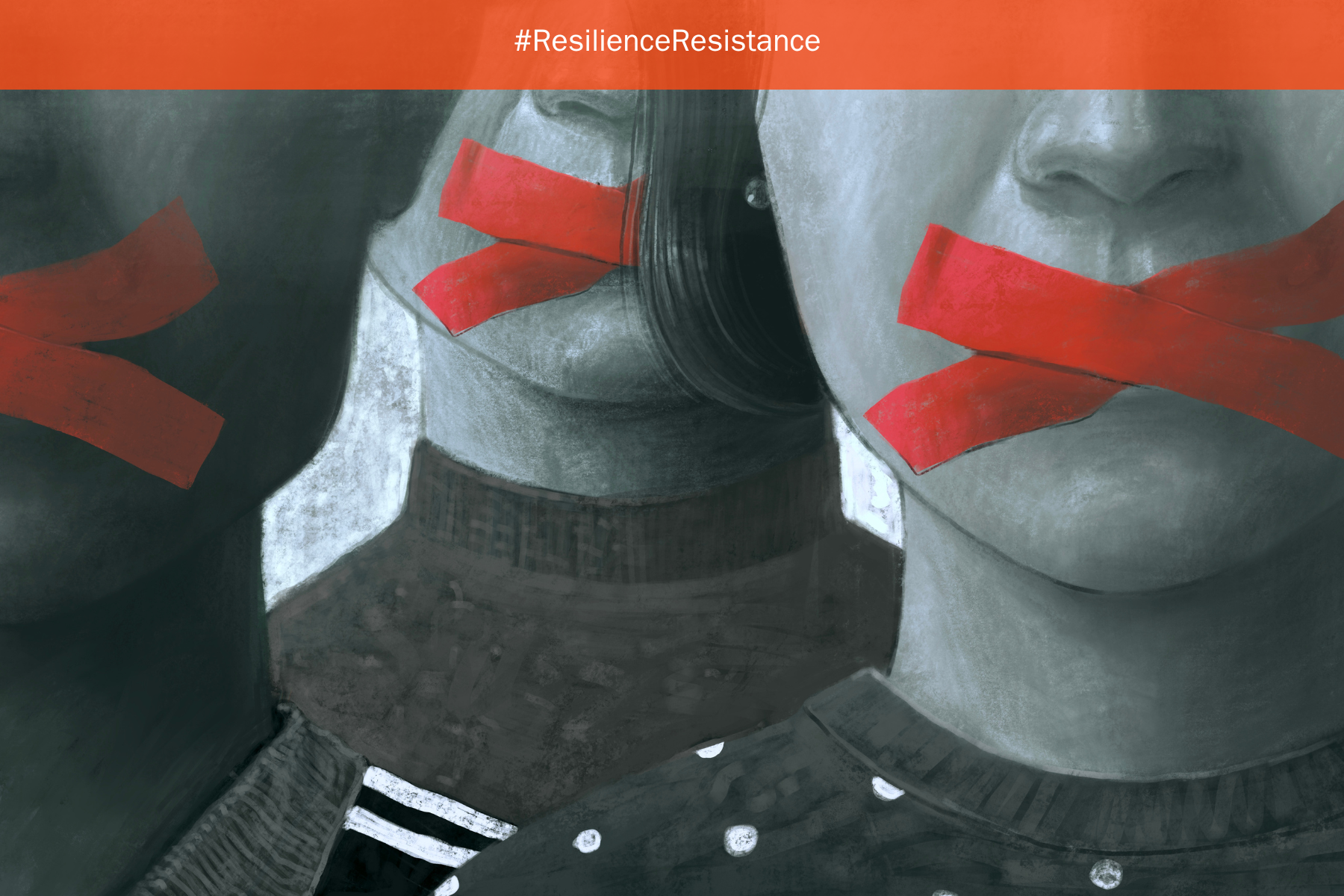What Is a Democracy without Women’s Rights?
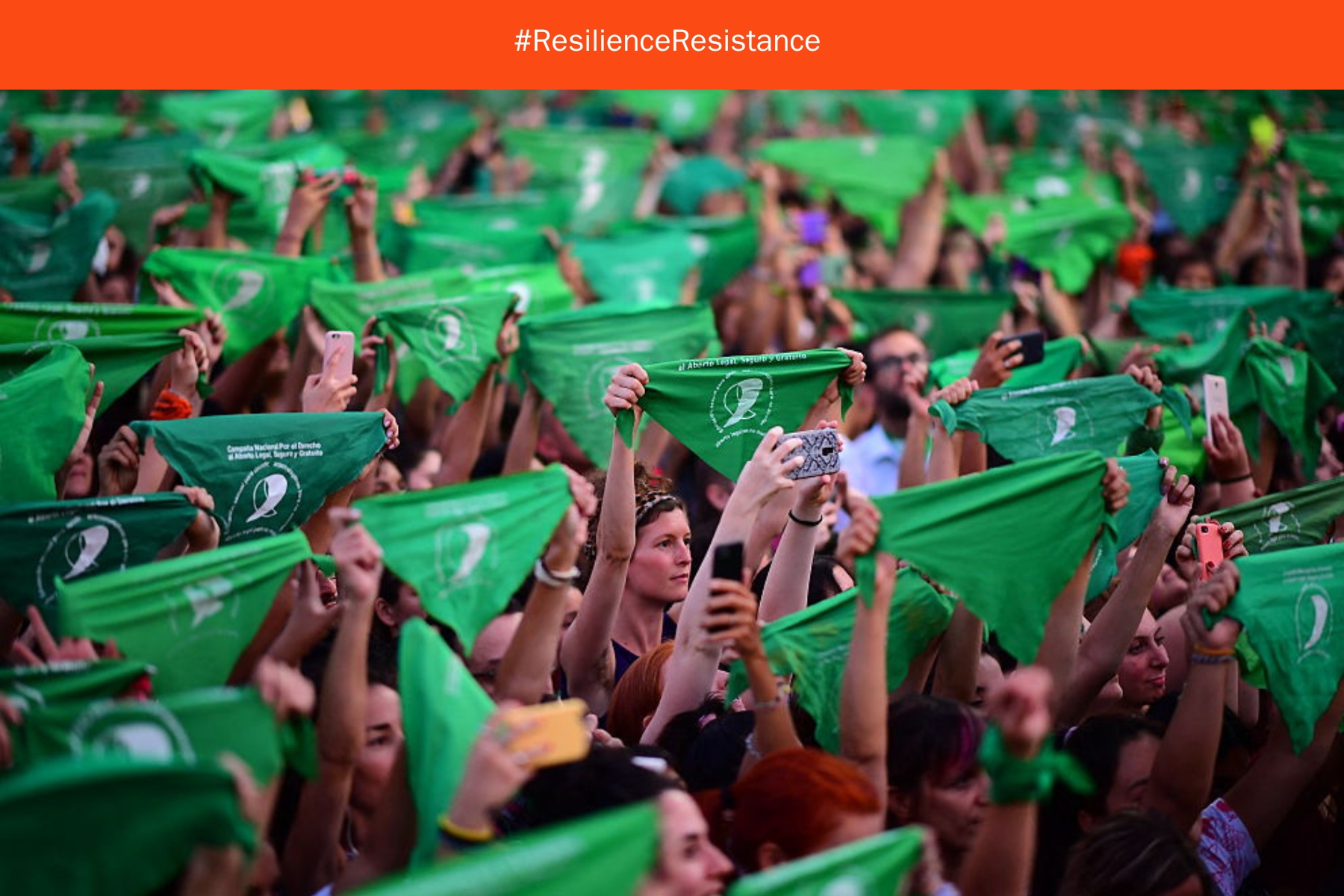
During four decades of democratic governance in Argentina, a lot has been achieved in terms of women's rights and gender equality, including quotas for women's political participation. Legislation and public policies have addressed gender-based violence. At the same time, a broad social movement advocating for reproductive freedom strengthened a plural, diverse, intergenerational movement. This coalition built links with other social activists to forge a path we are proud of.
More recently, however, in every regional meeting bringing together feminist advocacy groups and leaders from Latin America and beyond, the perspective on Argentina is quite different. The question often asked is, "How are you coping?"
A lot has changed in the last few years.
Where We Came From: A Time When the Feminist Moment Grew Strong
In early 2015, violent murders of young women at the hands of their intimate partners was regularly in the news. Marcela Ojeda, an Argentine radio journalist who was used to covering shocking events, tweeted: "Actresses, politicians, business women, social leaders . . . well, women in general . . . aren't we going to do something? WE ARE GETTING KILLED."
A group of women journalists promptly responded. They joined forces with feminist activists who had already built an agenda. This campaign increasingly (though still marginally) brought together women from politics, academia, and women's organizations. The movement that grew from this cross-sector gathering of women became known as Ni Una Menos, meaning "Not one (woman) less," referring to the high national female death toll due to extreme gender-based violence.
Ni Una Menos—as a collective cry—successfully brought the number of femicides into the spotlight. Existing legislation intended to protect women was poorly implemented with no public accountability nor sufficient allocation of resources. On June 3, 2015, Massive demonstrations spread from Buenos Aires to every town in Argentina and throughout the region. This new focus on femicides was the crucial first step toward addressing a pervasive culture of gender-based violence.
Argentine feminists emerged as some of the most relevant political actors in the public arena. The Ni Una Menos movement triggered a number of unprecedented positive reactions, beginning with the first national action plan to address gender-based violence. From 2015 to 2019, gender equality seemed to be at the top of the public agenda. It was during those years that the "green wave" National Campaign for Legal Abortion (and their characteristic green scarf) successfully reached National Congress for a nationwide, well-informed debate on the legalization of abortion. The law to legalize abortion was finally passed in December 2020 and contributed to a regional movement across Latin America of sharing strategies and lessons learned to advance toward more egalitarian societies.
And Then, Things Changed . . .
A large part of the Argentine population, mainly young and middle-aged men, were dissatisfied. This group did not see the traditional political parties as reflecting their concerns, and this paved the way for a new type of political candidate. These new candidates based their campaigns on confrontation rather than on the exchange of ideas and political debate. Then in the 2023 national electoral contest, Javier Milei, the presidential candidate with the most regressive agenda in terms of women's rights, gender equality, and social justice, prevailed.
The outcome of that election was a wake-up call for women's rights and social justice. It begged the question of how solid the foundations were on which the rights, policies, and consensus of inclusive democracy were based. The powerful women's movement and its demands for a life free from all forms of violence lost political prominence.
This was a dramatic change for a movement that had mobilized hundreds of thousands throughout the country with the slogan #NiUnaMenos. The country was now supporting a leader who perceives public policies promoting equality education as a threat, protection of women experiencing domestic violence as a waste of resources, and social justice as an abomination. Although the new government is part of the larger regional and global phenomenon of rising authoritarianism amid democratic backsliding, it has found support in a society that has been burdened by successive economic crises and the inability of different political forces to understand the country's unresolved problems and their impact on daily life.
Forty years after the first presidential election of Argentina's democratic period, the protection of women's rights and their recognition as human rights now face a critical moment. The National Ministry for Women's Rights was immediately dissolved by the new government, and all public policies that addressed gender-based violence and supported sexual and reproductive rights were halted. The official position of many prominent politicians is that "gender ideology" has been used by public institutions to "unfairly benefit" women, and this should end. Depending on the result of the upcoming legislative midterm elections, it is likely there will be new attempts to overturn legislation that protects women's rights.
The consequences are already evident. Few actual resources are now available to help women navigate the barriers to access justice or to apply for economic relief, so women are less inclined to go to public authorities to seek assistance in situations of domestic violence. Of course, these experiences differ in different parts of the country since women and provincial governments are left on their own.
. . . But Not Everything Has Changed
Over the past few months, different reports have shown that support for President Milei's policies is based on the expectation of economic recovery rather than as broad support for the "cultural battle" that the government is determined to lead against women, gender equality, and LGBTQ+ rights.
If this is the case, then as a society we may not have changed that much. And this can be good news, allowing for common ground and possible conversations, which could lead to recovering our seemingly lost social consensus.
The results of a recent study undertaken by Equipo Latinoamericano de Justicia y Género (Latin American Group for Gender and Justice) show that Argentine society still has a positive appreciation of rights and sees gender equality as central to the well-being of individuals and the community as a whole. This means that we value the path of progress taken in the last decades, even if there are still important issues to be addressed.
Study respondents also believe that the majority of Argentine society agrees with various interventions, policies, or campaigns that promote gender equality. These responses suggest a way to bring together and rebuild bridges in a society that is in many ways fractured. But the truth is that there is still room for conversation and consensus-building with people with whom we may disagree on many issues, but with whom we also share common aspirations around nondiscrimination, the protection of people in vulnerable situations, and the role of the state in this work. Let's talk about how to do it, knowing that we share this common ground.
Throughout these 40 years of democracy, we have learned that in order to advance the agenda of gender equality, collaborative strategies with different movements are crucial. It's time to focus on what we have in common. That's what we share. The challenge now is to protect what we have gained, strengthen our alliances, and move forward.
Natalia Gherardi is an academic and feminist lawyer, who graduated from the University of Buenos Aires. A Chevening Scholar, she holds an Master of Laws (LLM) from the London School of Economics and Political Science. Gherardi is a founding member and the executive director of Equipo Latinoamericano de Justicia y Género (ELA), a human rights organization based in Argentina with the purpose of promoting gender equality and the human rights of women through the use of law and public policies.
Resilience & Resistance is a Charles F. Kettering Foundation blog series that features the insights of thought leaders and practitioners who are working to expand and support inclusive democracies around the globe. Direct any queries to globalteam@kettering.org.
The views and opinions expressed by contributors to our digital communications are made independent of their affiliation with the Charles F. Kettering Foundation and without the foundation’s warranty of accuracy, authenticity, or completeness. Such statements do not reflect the views and opinions of the foundation which hereby disclaims liability to any party for direct, indirect, implied, punitive, special, incidental, or other consequential damages that may arise in connection with statements made by a contributor during their association with the foundation or independently.
